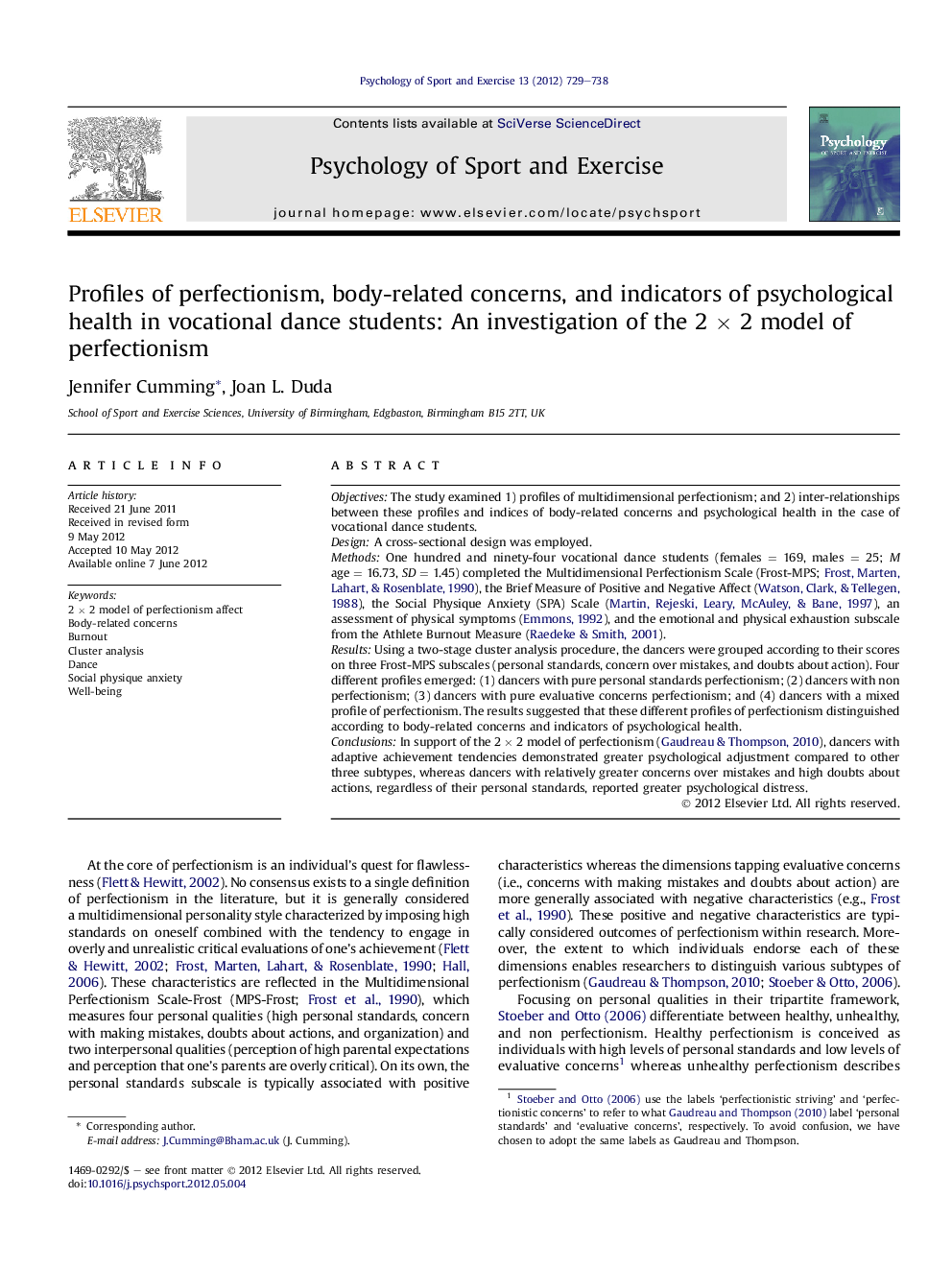| Article ID | Journal | Published Year | Pages | File Type |
|---|---|---|---|---|
| 894678 | Psychology of Sport and Exercise | 2012 | 10 Pages |
ObjectivesThe study examined 1) profiles of multidimensional perfectionism; and 2) inter-relationships between these profiles and indices of body-related concerns and psychological health in the case of vocational dance students.DesignA cross-sectional design was employed.MethodsOne hundred and ninety-four vocational dance students (females = 169, males = 25; M age = 16.73, SD = 1.45) completed the Multidimensional Perfectionism Scale (Frost-MPS; Frost, Marten, Lahart, & Rosenblate, 1990), the Brief Measure of Positive and Negative Affect (Watson, Clark, & Tellegen, 1988), the Social Physique Anxiety (SPA) Scale (Martin, Rejeski, Leary, McAuley, & Bane, 1997), an assessment of physical symptoms (Emmons, 1992), and the emotional and physical exhaustion subscale from the Athlete Burnout Measure (Raedeke & Smith, 2001).ResultsUsing a two-stage cluster analysis procedure, the dancers were grouped according to their scores on three Frost-MPS subscales (personal standards, concern over mistakes, and doubts about action). Four different profiles emerged: (1) dancers with pure personal standards perfectionism; (2) dancers with non perfectionism; (3) dancers with pure evaluative concerns perfectionism; and (4) dancers with a mixed profile of perfectionism. The results suggested that these different profiles of perfectionism distinguished according to body-related concerns and indicators of psychological health.ConclusionsIn support of the 2 × 2 model of perfectionism (Gaudreau & Thompson, 2010), dancers with adaptive achievement tendencies demonstrated greater psychological adjustment compared to other three subtypes, whereas dancers with relatively greater concerns over mistakes and high doubts about actions, regardless of their personal standards, reported greater psychological distress.
► Correlates of dance students’ multidimensional perfectionism were examined. ► Perfectionism subtypes were as predicted by the 2 × 2 model of perfectionism. ► Dancers with pure PSP perfectionism have greater psychological health. ► Greater psychological distress was found for mixed perfectionism and pure ECP.
